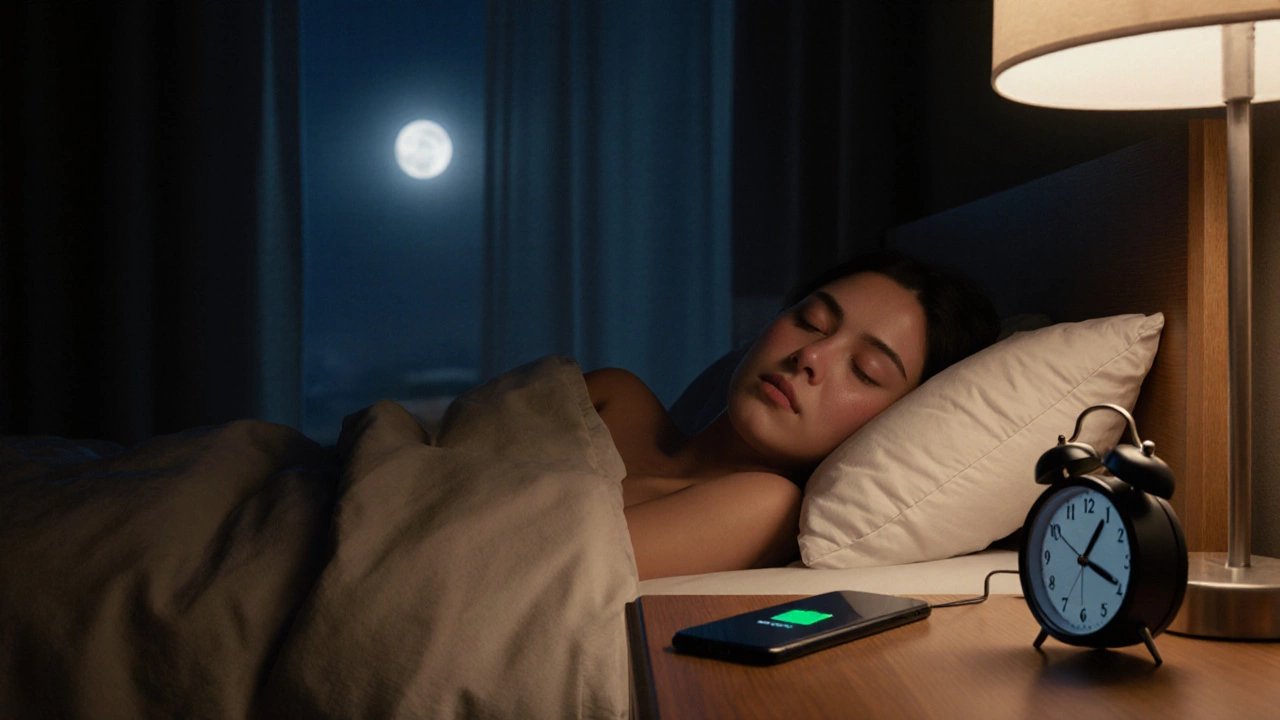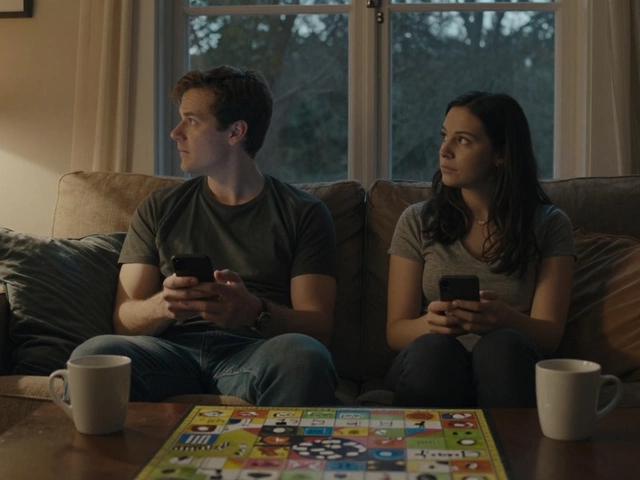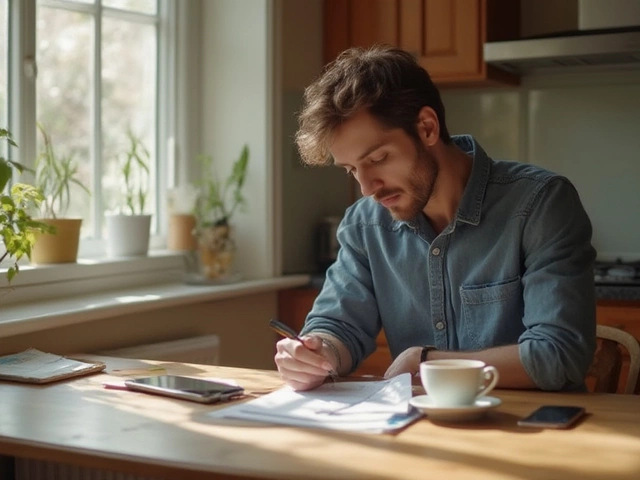Daily Habit Tracker
Your Daily Habit
Choose one small action you can do consistently for 30 days.
Your Progress
Daily Tracker
Remember: You don't need to be perfect. Consistency matters more than perfection. One missed day doesn't erase progress.
Want to better your life but don’t know where to start? You’re not alone. Most people try big, flashy changes-quit their job, join a gym, meditate for an hour a day-and quit within a week. Real change doesn’t come from dramatic gestures. It comes from tiny, consistent actions that stack up over time.
Start with one thing, not ten
Trying to fix everything at once is the fastest way to burn out. Think of your life like a house. You don’t repaint every room on the same day. You pick one wall. One corner. One drawer. You fix that. Then you move on.Choose one area that’s bothering you right now. Maybe it’s sleep. Maybe it’s scrolling through your phone for hours after dinner. Maybe it’s avoiding calls from your mom because you feel guilty. Pick one thing. Not because it’s the most important, but because it’s the one you can actually do something about today.
Here’s what that looks like in practice:
- If you’re tired all the time: Put your phone on charge outside your bedroom at 10:30 p.m. every night. No exceptions. Not even for "just five more minutes."
- If you feel guilty about not calling family: Set a recurring alarm for 7 p.m. on Sundays. When it goes off, call one person. Even if it’s just for three minutes.
- If you’re always late: Set every clock and watch in your house five minutes fast. Not because you’re trying to trick yourself, but because you’ve probably been underestimating how long things take.
These aren’t grand life overhauls. They’re small fixes that remove friction. And friction is what kills momentum.
Track progress, not perfection
You don’t need a journal. You don’t need a fancy app. You just need to know if you’re moving forward.Try this: Get a notebook or open a note on your phone. Every night, write down one thing you did that moved you forward-even if it was tiny. Not "I meditated for 20 minutes." That’s pressure. Write: "I sat still for two minutes before bed and didn’t check my phone."
Why does this work? Because your brain remembers failure. It’s wired to focus on what went wrong. Writing down what went right rewires that pattern. After a week, you’ll look back and realize: "I did that every day. I’m not stuck. I’m building something."
One woman in Leeds told me she started doing this after her divorce. She wrote: "Made tea. Didn’t cry." Day after day. After 30 days, she didn’t need to write it anymore. She just felt different. Not because she fixed everything-but because she proved to herself she could show up.
Stop chasing motivation
Motivation is a myth. It doesn’t drive people. Systems do.You don’t wake up and think, "I feel motivated to exercise today." You put your shoes by the door the night before. You open the door. You step outside. You start walking. The motivation comes after you start.
Here’s how to build a system:
- Make it easy. If you want to read more, leave a book on your pillow. Not on a shelf. On your pillow.
- Make it obvious. If you want to drink more water, keep a glass on your desk. Fill it before you leave for work.
- Make it satisfying. Put a sticker on your calendar every time you do it. No judgment. Just a dot. After seven dots, treat yourself to a coffee you wouldn’t normally buy.
Systems work because they take decisions out of your hands. You don’t have to "feel like it." You just have to follow the path you already laid down.
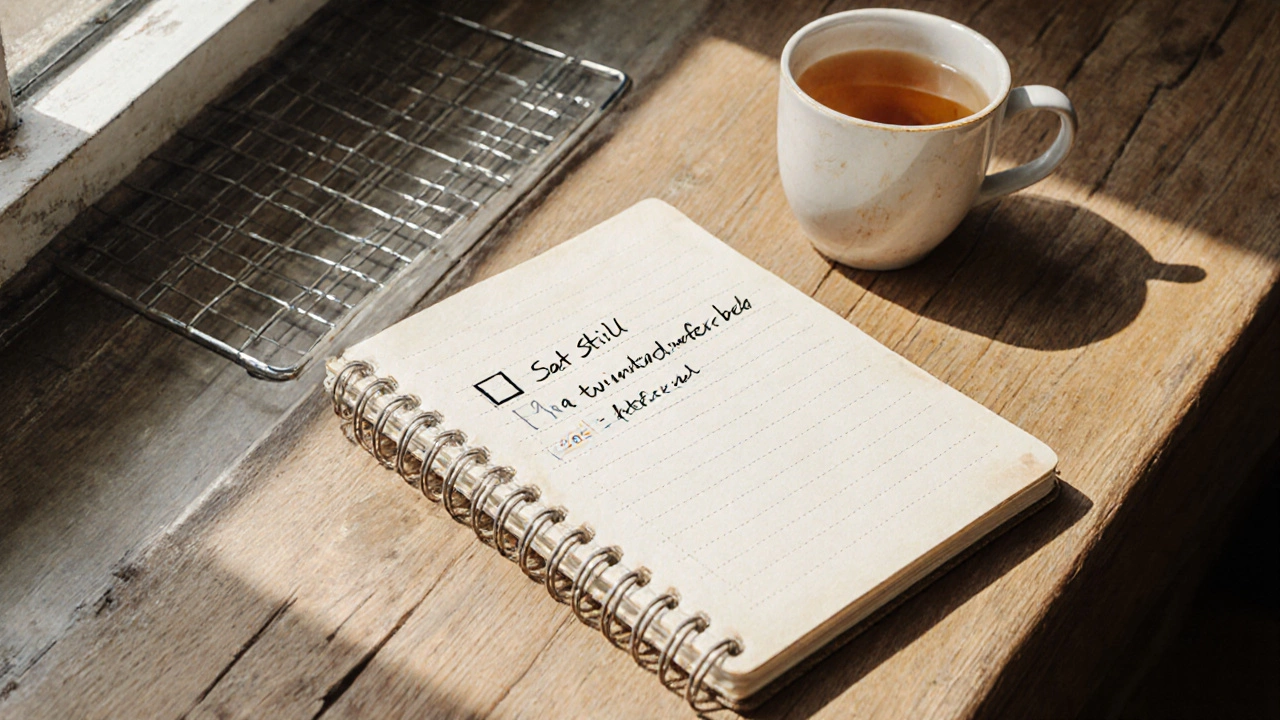
Surround yourself with quiet energy
You are the average of the five people you spend the most time with. That’s not a quote from a self-help book. That’s a fact backed by studies from the University of Chicago and Harvard.But it’s not about who you hang out with-it’s about who you let into your mental space. Who do you listen to? Who do you read? Who do you watch?
If you spend your evenings scrolling through influencers who sell "hustle culture" or binge-watch reality TV that makes you feel worse about yourself, you’re not just wasting time. You’re training your brain to feel inadequate.
Swap one thing this week:
- Instead of watching a podcast about making millions, listen to one about how someone fixed their back pain with daily stretching.
- Instead of following 500 people on Instagram, follow three who post real, messy, unfiltered moments of their lives.
- Instead of reading headlines about global disasters, read a short story from a local author.
Quiet energy doesn’t shout. It doesn’t sell you something. It just shows up. And after a while, you start to feel it too.
Let go of the idea of "fixing" yourself
Most self-improvement advice is built on a lie: that you’re broken and need to be fixed.You’re not broken. You’re adapting. You’ve learned how to survive. Maybe you learned to stay quiet to avoid conflict. Maybe you learned to overwork to feel worthy. Those weren’t mistakes. They were survival tools.
Now you’re ready to add new tools-not replace the old ones with shame.
Instead of saying, "I need to stop being lazy," try: "I’ve been using rest as a way to protect myself. What else could protect me without draining me?"
Instead of saying, "I need to be more confident," try: "When did I last feel safe enough to speak up? What would it take to feel that way again?"
Self-improvement isn’t about becoming someone else. It’s about remembering who you were before you learned to hide.
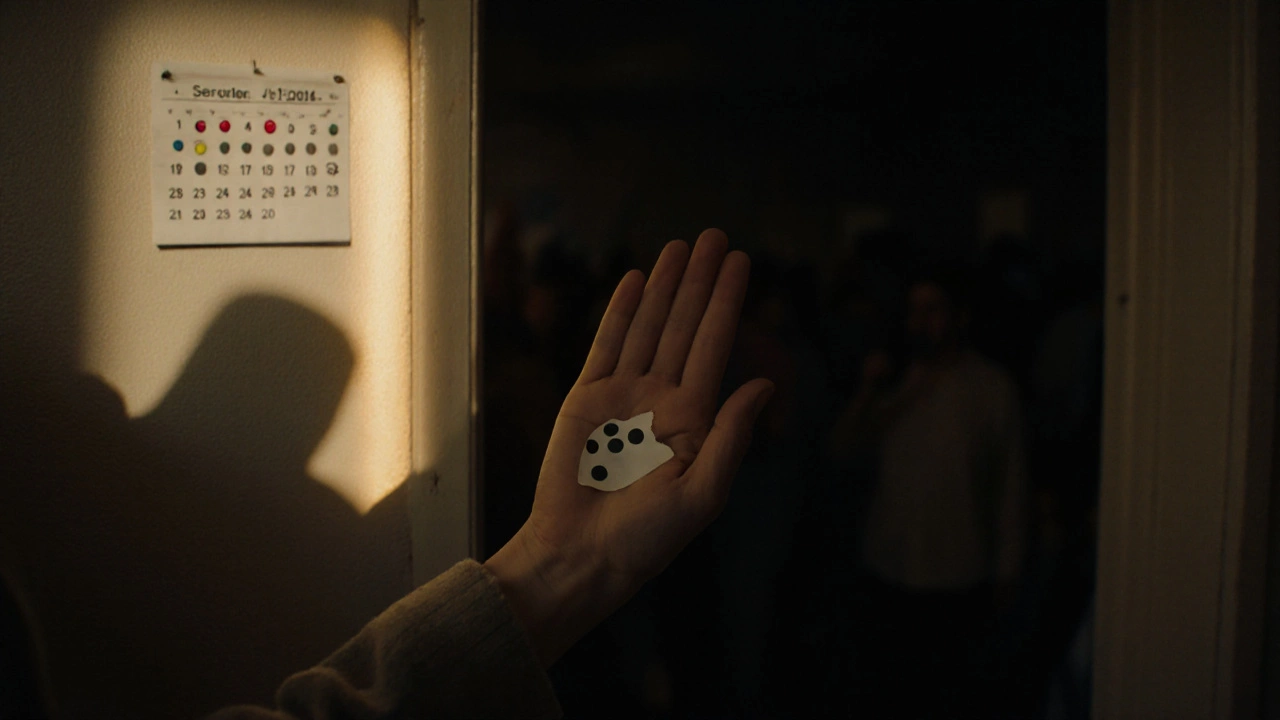
Do one thing that scares you this week
Growth doesn’t happen in comfort. It happens in the space between "I can’t" and "I did."It doesn’t have to be public. It doesn’t have to be dramatic. But it has to be real.
Here are a few examples:
- Say "no" to a request you usually say "yes" to.
- Send an email to someone you admire-just to say thank you.
- Walk into a room where you don’t know anyone and sit down.
- Ask for help with something you’ve always done alone.
These aren’t "confidence boosters." They’re proof that you’re still alive. That you’re still willing to risk being awkward, misunderstood, or rejected. And that’s the real foundation of a better life.
It’s not about becoming perfect. It’s about becoming present.
Bettering your life isn’t a destination. It’s not a six-month plan or a checklist you’ll someday tick off. It’s a daily practice of showing up-even when you don’t feel like it. Even when you’re tired. Even when you’re scared.Start small. Track it. Build systems. Choose your influences wisely. Stop fighting yourself. And do one thing that scares you.
That’s it. No magic. No secrets. Just human work. And if you do it for 30 days, you won’t need to ask "How do I better my life?" anymore. You’ll already be living it.
What’s the fastest way to better my life?
There’s no fast way. Lasting change happens slowly, through consistent habits. Trying to rush it leads to burnout. Focus on one small action you can do every day for 30 days. That’s faster than any quick fix.
I’ve tried self-improvement before and failed. Why would this be different?
Most self-improvement fails because it’s built on guilt and pressure. This approach is built on curiosity and kindness. You’re not trying to become someone new-you’re just adding small, doable habits that reduce stress and increase peace. It’s not about fixing yourself. It’s about making life easier.
Do I need to meditate or journal to better my life?
No. Meditation and journaling help some people, but they’re not required. If you don’t enjoy them, don’t force them. Instead, find what feels natural: walking without headphones, making your bed, calling a friend. Any small, consistent action counts.
How long until I see results?
You’ll notice small shifts in as little as 7 days-like sleeping better, feeling less anxious, or noticing you’re smiling more. Big changes take months. But you don’t need to wait for "big" to feel improvement. Pay attention to the tiny wins.
What if I miss a day?
Miss a day? That’s fine. Don’t restart. Just continue. Self-improvement isn’t a streak you have to keep perfect. It’s a rhythm you learn to return to. One missed day doesn’t erase progress. Self-criticism does.
If you’re reading this and thinking, "I don’t have time," ask yourself: What are you doing right now that’s more important than becoming someone who doesn’t feel stuck? Your life isn’t waiting for you to be ready. It’s waiting for you to show up.

